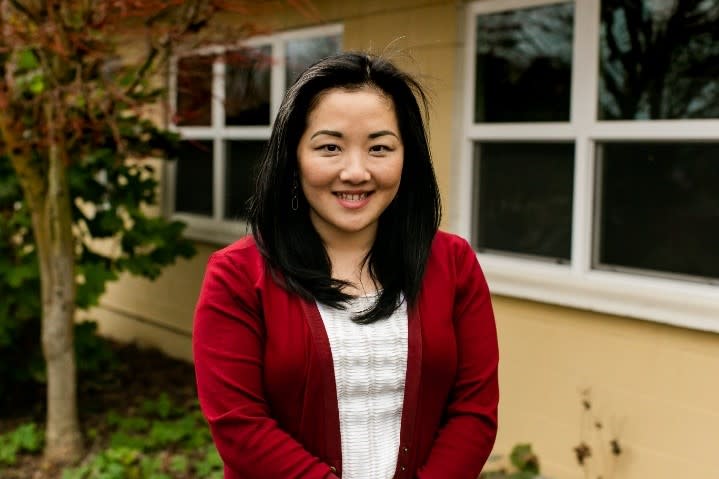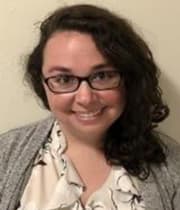Navos Infant and Early Childhood Mental Health Program helps families recover from trauma

At Navos, which is part of the MultiCare Behavioral Health Network, the Infant and Early Childhood Mental Health Program (IECMHP) consists of a team of 11 clinicians who support families with infants and young children, birth to 5 years, who have experienced trauma or other stressful experiences. IECMHP helps these families heal and flourish through relationship-based psychotherapy and case management services. It’s one of very few programs in Washington state to focus exclusively on building this critical parent-child connection in a trauma-informed way. IECMHP serves Medicaid eligible families, and the work is supported by grants and donors to MultiCare Behavioral Health Foundation.
“When infants and young children are brought in for services, we don’t always know what has happened to them. We typically hear about the child’s tantrums, separation anxiety, difficulty sleeping or eating or other problematic behaviors that have been impacting the families’ day-to-day lives,” Haruko Watanabe, manager of IECMHP, says. “We partner with the caregivers to understand the child’s experiences that may have led to these behaviors. Understanding the meaning behind the behavior is an important aspect of what we do.”
The clinician then works with the child and parent/caregiver approximately once per week, promoting healthy child development and offering guidance on how to foster a safe and nurturing home environment.
“I’m a firm believer that every parent, every family should get support, so they can be the best parents they want to be,” Haruko explains. “But there are so many families who are isolated, or so many parents who have experienced historical trauma and systemic oppression, who just don’t have the same access to support in the community. We believe that quality childcare and trauma-informed, developmentally appropriate psychotherapy should be made available to all families.”
Navos, which developed the dedicated infant mental health program in 2007, was the first community mental health organization in King County to do so, helping to ensure that this service was available for everyone as part of general behavioral health services.
“Not too long ago, many people used to deny that babies felt pain or remembered early experiences,” Haruko says. “Now, it’s more widely accepted that babies feel pain and do remember. They’re often more severely impacted by early infancy trauma, because it’s when the brain development is happening most rapidly.”
Over 14 years, the program has helped more than 1,000 families. During weekly sessions, parents and caregivers learn the skills needed to be healthy for themselves and their little ones. Building strong foundational relationships can give infants and young children the best chance of growing up safe and finding success later in life.
Additional services and the COVID-19 pandemic
Along with intensive clinical treatment, IECMHP provides early childhood mental health consultations for preschools, local childcare and early learning programs. From supporting teachers and staff to giving child-specific support recommendations, the team offers prevention and promotion services to ensure that young children and the important adults in their lives are accessing support in their natural environments. IECMHP clinicians also offer parent training to destigmatize trauma and mental health.
With the pandemic, the program moved to mostly virtual therapy sessions, serving 124 children and their families in 2020. For very young children and active kiddos where the telehealth format didn’t work well for their developmental and clinical needs, clinicians got creative and conducted masked and socially distanced sessions in backyards, driveways and in local parks. As local preschools have reopened for in-person services, the demand for early childhood mental health consultation has grown.
Collaboration, equity and community support
Though there are many challenges with this important work, Haruko is energized by the collaborative nature of her job, the opportunity to advance equitable access to quality services and what IECMHP can accomplish thanks to community donations.
“What gets me excited is the idea of capacity building at the community level,” she says. “Our program was developed with that spirit in mind. We’ve always worked in teams. We’ve always reached out to other organizations to support their work in Infant and Early Childhood Mental Health, because we can’t do this alone, and families ultimately benefit when we work together.”
For over a decade, IECMHP has provided state-level leadership in this field, bringing clinical and community voices to local and state policy work that impacts the lives of young children.
Through these partnerships and donor support, Haruko and her team can reach out to communities who need it most.
“When donors invest in our program, they are choosing to do some social justice work with us,” Haruko explains. “We are intentional about the families we serve. Communities that have been most significantly impacted by historical trauma and adverse community experiences should get to access the highest quality care that we can offer. It’s a way of doing our part in community-level healing.”
Donations also fund resources, such as food, clothing and, most recently, cloth masks for young clients in need, as well as continued education and training for Haruko and her colleagues.
“We’re grateful to have resources available that allow us to continue getting the training we need to better serve families,” she says. “We have clinicians who have more specialized training in longer-term trauma treatment for infants and young children than in the private practice sector, and that makes sense because of the complex, multi-generational trauma we’re working to treat. All of this is only possible because of the grant and donor funding we’re so fortunate to receive.”
You can support programs like the Infant and Early Childhood Mental Health Program by donating to the MultiCare Behavioral Health Foundation. Together, we can help underserved children, youth and adults receive effective behavioral health treatment.




